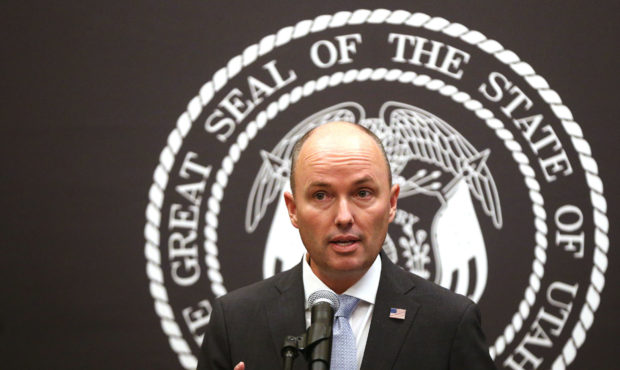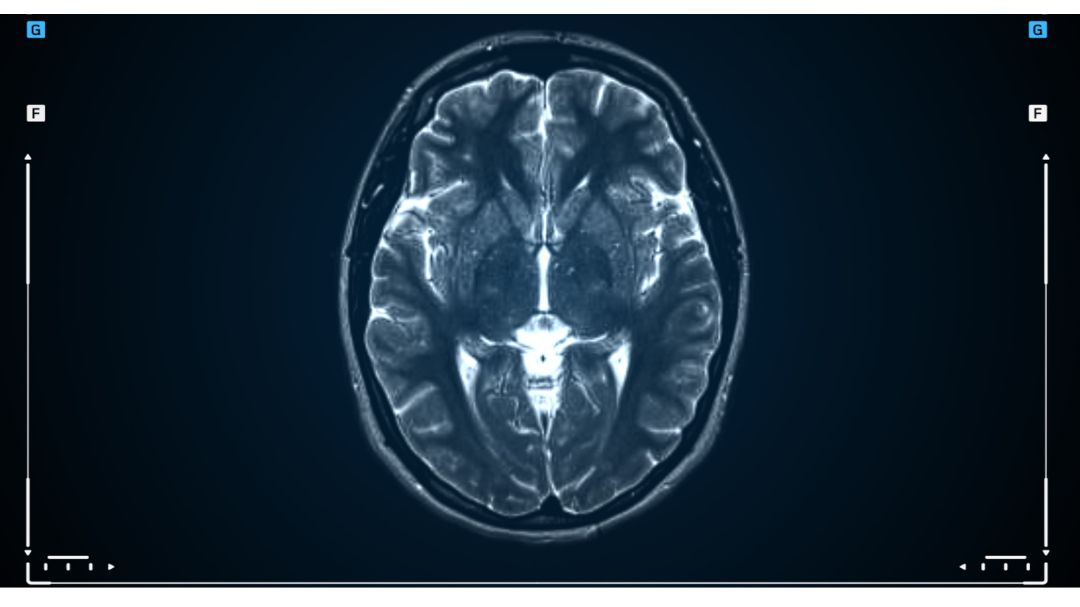‘We screwed up.’ Governor Cox retracts his Utah vaccination rates claim that 70% of eligible Utahns are vaccinated
Jul 12, 2021, 12:00 PM | Updated: Aug 2, 2022, 12:36 pm

FILE: Gov. Spencer Cox speaks at a COVID-19 briefing at the Capitol in Salt Lake City on Friday, Jan. 8, 2021. Photo: Jeffrey Allred, Deseret News
SALT LAKE CITY — Nearly a week ago, Governor Cox celebrated a COVID-19 vaccine milestone, stating 70% of eligible Utahns over the age of 18 have been vaccinated. Now, the state is retracting the statement, citing a Utah vaccination rates data reporting error.
In a tweet from Cox on Monday, he announced there was a miscount of federal vaccine doses, and that 67.07% of eligible Utahns over the age of 18 have received at least their first COVID-19 shot, rather than 70.02% as previously reported.
Welp. We screwed up. Because of a reporting error we have not yet hit 70% on our adult vaccinations. I promised to admit our mistakes and hold us accountable. I hope you will forgive us—and know we have made changes to ensure it won’t happen again. pic.twitter.com/NZK8A8gabt
— Spencer Cox (@SpencerJCox) July 12, 2021
Governor Cox opened the statement by owning up to the mistake. “We screwed up,” wrote the governor. “And I sincerely apologize.”
Cox mentioned that, in the past, data sharing with the federal government has been difficult. But he took responsibility for this inaccuracy.
“This one is on us,” said Cox. “Our data team is devastated and embarrassed. And so am I.”
Governor Cox says the state has taken steps to ensure a mistake like this does not occur in the future. Additionally, Cox says the mistake was simply human error, and there’s no indication of ethical breaches.
UDOH spots the Utah vaccination rates error
The Utah Department of Health initially spotted the Utah vaccination rates discrepancy, discovering they tallied single doses many times in some cases.
In a news release Tuesday, the Utah Department of Health noted that federal agencies, including the Department of Defense, Veterans Affairs, Indian Health Services, and the Bureau of Prisons, don’t report their vaccine data to state immunization systems. Instead, UDOH looks at Tiberius, a federal vaccine database, to account for those doses.
“The UDOH mistakenly interpreted all federal doses reported in Tiberius as “new” doses, when in fact Tiberius reports “cumulative” doses. This misunderstanding led to single doses being counted multiple times,” read the department’s statement.
The department apologized for the error relayed to the governor and to Utahns, stating, “we remain steadfast in our commitment to presenting data accurately, transparently, and with integrity.”
Both the governor and the Utah Department of Health said the miscalculation intensifies the need for Utahns to get vaccinated against COVID-19, especially as the Delta variant becomes more prominent.
“Most importantly though, this means we have even more work to get Utahns vaccinated,” emphasized Cox. “We will continue to do everything possible to make vaccinations easier and more accessible. And we will continue to hold ourselves accountable.”
Making the vaccine more accessible
The governor’s statement also says this mistake shows health officials need to do “more work” when it comes to Utah vaccination rates. He vows to make the vaccine easier to get. Some health officials say the state is trying to find the people who still want to get their shots, but they’ve been putting it off.
State Immunization Director Rich Lakin said, “We still have about, possibly 13 percent of the population that are not against the vaccine, and they’re just waiting.”
He believes the increasing number of new cases, and the prevalence of the Delta variant will convince more people they need to protect themselves from the virus.
“We’re one of the states that’s being hit by the Delta variant pretty hard, right now,” Lakin said.
He says many doctors have been hesitant to offer the vaccines in their offices, fearing they wouldn’t be able to store the medication properly. However, Lakin says storage guidelines have relaxed since the beginning of the rollout. He says doctors are being allowed to request a smaller shipment of doses.
“Before, remember, it was close to a thousand doses, minimum, that could be requested. Well, a lot of physician’s offices can’t handle that,” according to Lakin.
Plus, doctors will be allowed to keep the vaccines in freezers for longer.
He said, “They can store the Pfizer vaccine in their freezer for a longer period of time, now. I believe it’s up to 45 days from when they receive it.”
Related articles:













